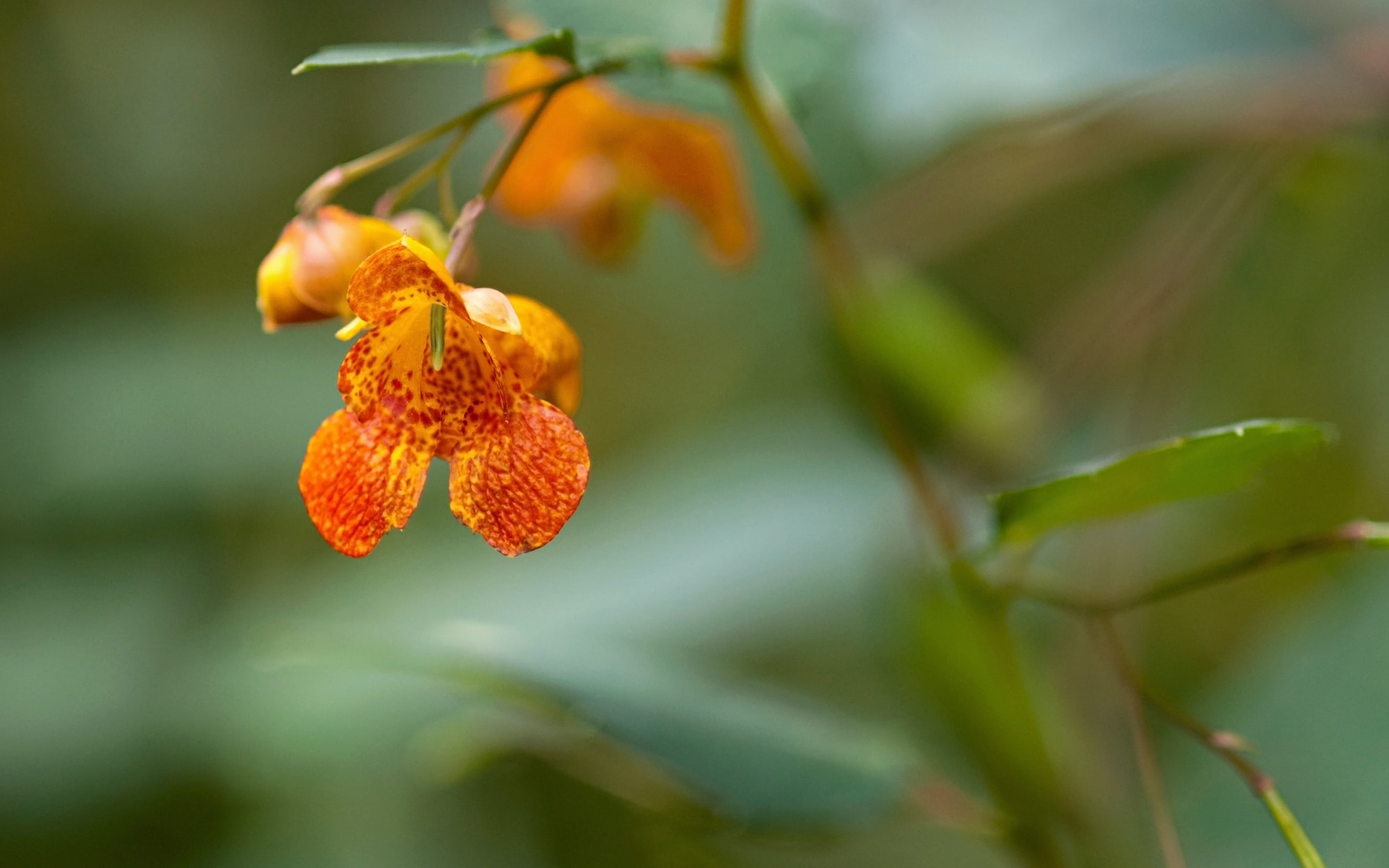This DIY Jewelweed Spray can help alleviate the itching of poison ivy, poison oak, poison sumac, bug bites, skin rashes and hives. This all-natural topical mist is packed with the remarkable powers of a common wildflower that you can harvest in the wild or your backyard.
What is Jewelweed?
Jewelweed, also known by its scientific name Impatiens capensis, is a beneficial plant that thrives in moist, shaded environments. The wildflower is often spotted along stream banks, in damp woods, and in other wetland areas.
This native North American plant is easily recognizable by its trumpet-shaped, orange flowers speckled with red or brown spots, resembling little jewels — thus earning it the name “jewelweed.”
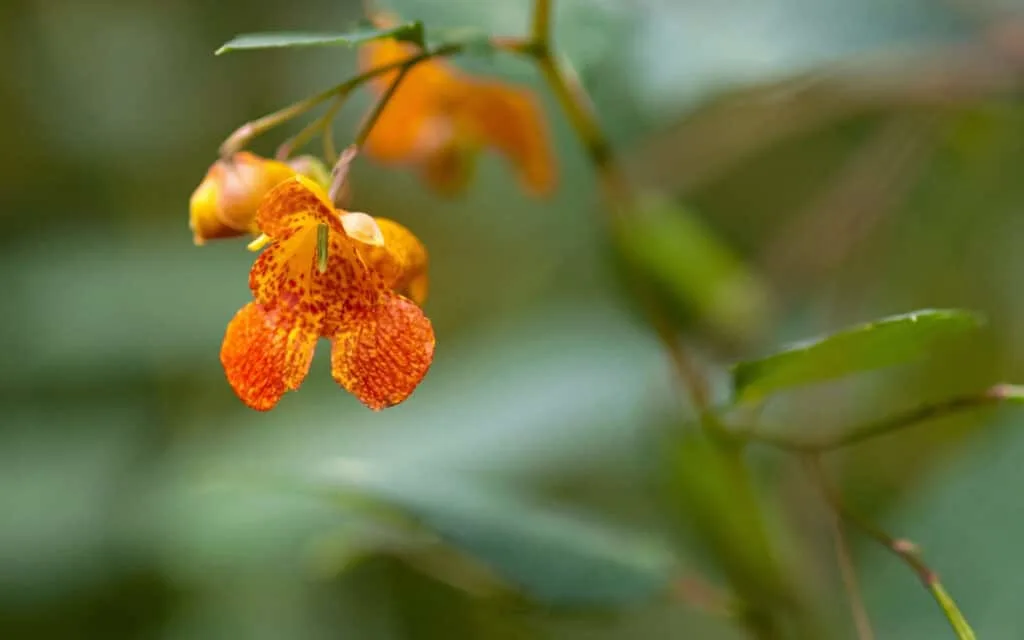
These vibrant flowers bloom from late spring to early fall, adding a splash of color to the green undergrowth. The flower is sometimes called a Spotted Touch-Me-Not because it bursts open at the slightest touch.
Not only is this wildflower pretty, jewelweed is highly regarded for its natural therapeutic properties. It has been used traditionally by many Native American tribes for treating a variety of skin irritations, such as the itchy rashes caused by poison ivy and stinging nettles.
Because Mother Nature often knows best, jewelweed is often found growing next to stinging nettles. So if you are stung by one plant, you can find relief with the other nearby.
The liquid and oils in this plant contain compounds that have anti-inflammatory and antipruritic effects, making it a go-to remedy in folk medicine.
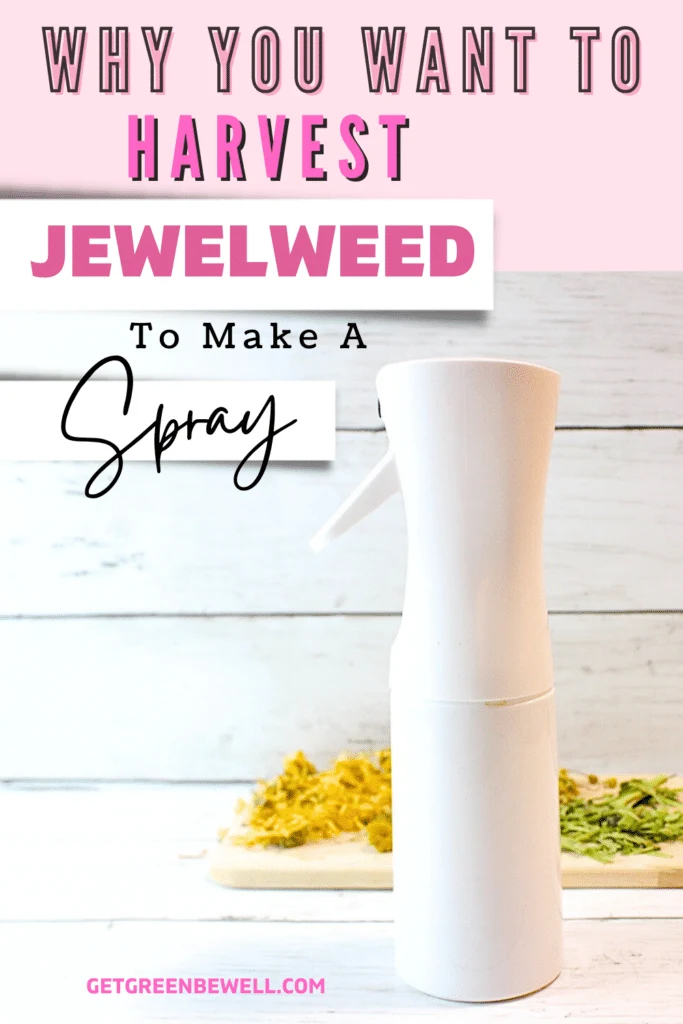
Jewelweed Spray Uses
A homemade jewelweed spray can be used instead of our DIY jewelweed salve when a topical mist is preferred, such as:
- Skin is too painful to touch
- Do not want to spread the rash or infection on the skin
- Prevent oil or beeswax from staining clothing
- Vegan alternative
A jewelweed spray is important to have on hand for many uses, including:
Jewelweed for Poison Ivy and Poison Oak
A clinical trial found that jewelweed is effective in reducing a poison ivy rash.
The secret to its effectiveness lies in compounds known as saponins, which give jewelweed with anti-inflammatory and antipruritic (reducing itching) qualities. A study published in the Journal of Ethnopharmacology found that jewelweed mash minimized the skin irritations caused by poison ivy when applied topically.
In addition to the soothing effects of this poison ivy salve, jewelweed also exhibits anti-inflammatory and antimicrobial properties, thanks to its natural saponins, which create a soap-like emulsion when the plant’s leaves and stems are crushed.
In fact, jewelweed soap is smart to have on hand just in case you get exposed to poison ivy.
Insect Bites and Bee Stings
Just like poison ivy and poison sumac rashes, insect bites can cause discomfort, swelling and lots of itching. This herbal botanical mist can help reduce inflammation and reduce the desire to scratch the skin.
Apply this gentle spray on bee stings and bug bites such as:
- Mosquito Bites
- Biting Flies
- Spider Bites
- Wasp Stings
- Bee Stings
- Gnat Bites
- Chiggers
Itching skin can sometimes lead to infection, which is why the antimicrobial properties of this herbal spray is beneficial to the skin. It can help prevent infection.
Skin Rashes
Any type of rash, hives or red, inflamed skin can be helped by this herbal spray.
The anti-inflammatory properties will help to reduce swelling and irritation from a variety of issues such as eczema, heat rash, etc.
Antimicrobial properties will help prevent infection that can occur when the skin is being scratched because of itching.
Scrapes, Burns, Small Cuts
A jewelweed spray is great for all kinds of skin irritations, including minor cuts, burns and scraped skin.
The natural anti-inflammatory and antimicrobial properties of the wildflower can reduce pain and prevent infection without the need of a chemical-based ointment.
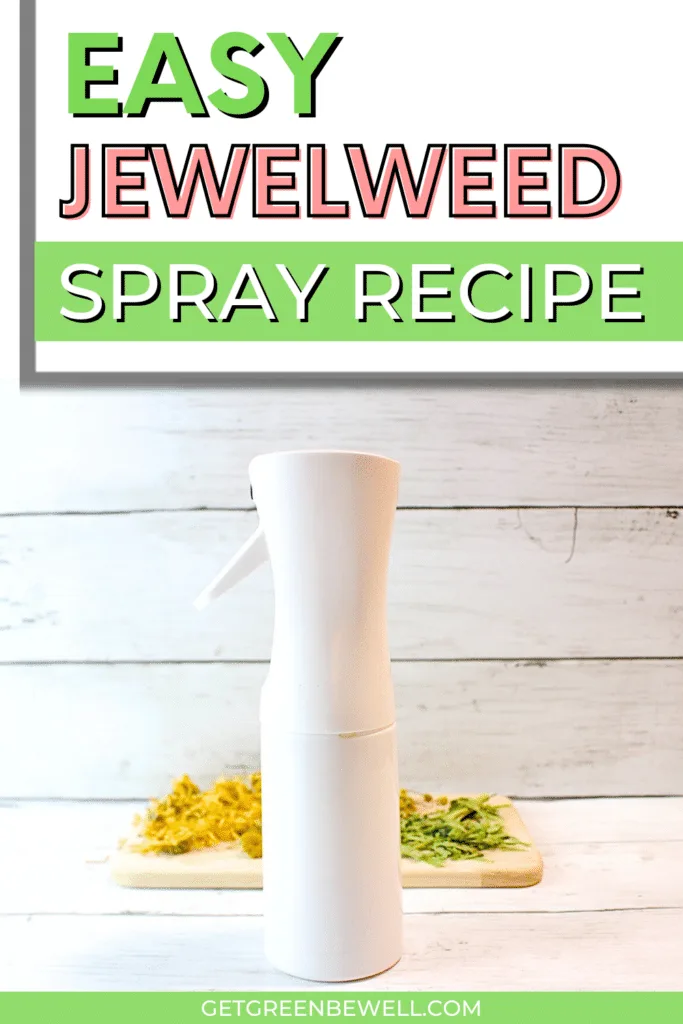
DIY Jewelweed Spray Recipe
This easy jewelweed spray recipe can be made in just a few minutes and kept in your natural medicine cabinet.
We added a few other flowers to add in some more beneficial properties and a lovely scent, but you do not need to add them in for an effective spray.
Ingredients
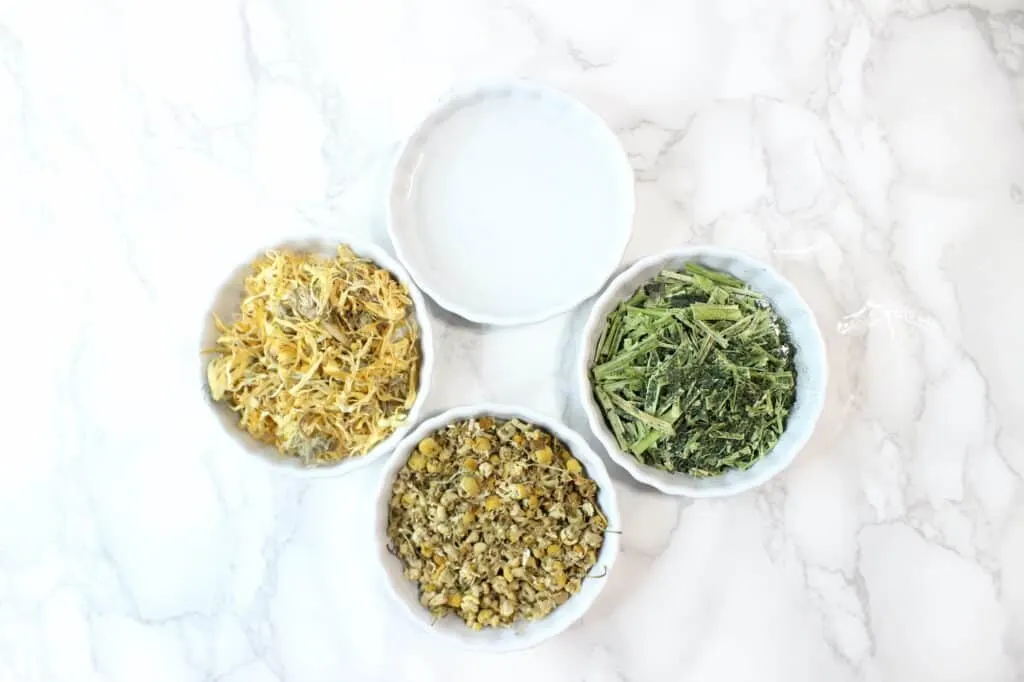
Directions
Step 1
Add the herbs and flowers inside a glass jar, such as a mason jar.
Pour the witch hazel on top until it completely covers everything inside.
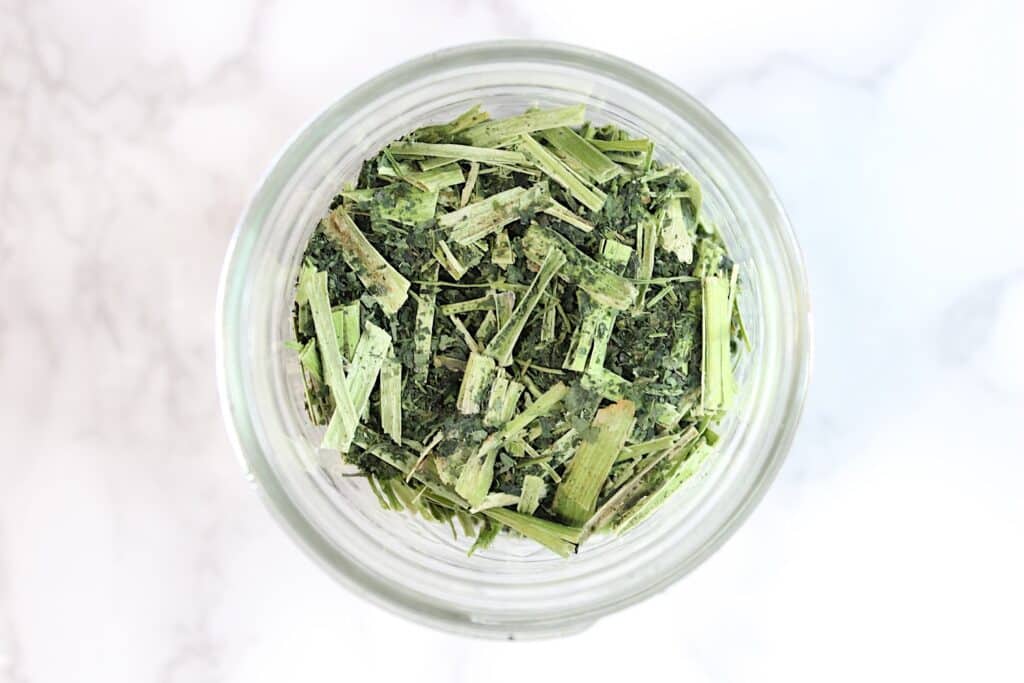
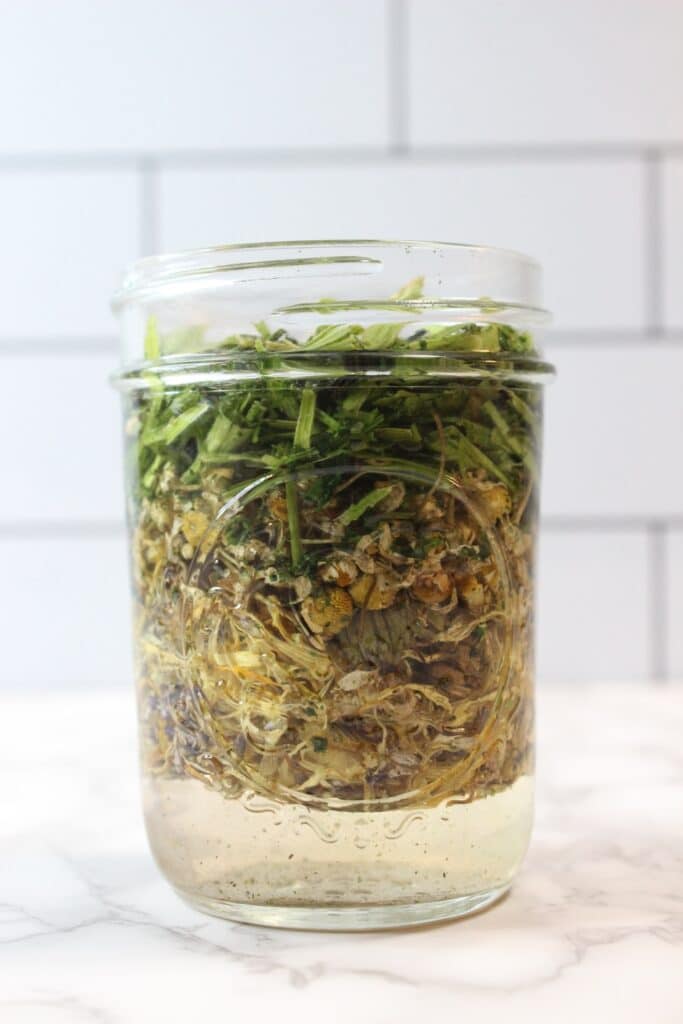
Step 2
Allow the jar to sit for 3-6 weeks in a cool, dark place. Putting it inside a cabinet is a great choice.
Shake the jar often at least every 3 days. You can shake it daily if you would like.
Step 3
Strain out the dried flowers and organic material.
Pour the infused witch hazel into a spray bottle, preferably an opaque or dark glass spray bottle so that the sun does not alter the spray.
Helpful Tips
- You can make a jewelweed spray with just the jewelweed. Chamomile and calendula make a great addition to help with itching and skin issues.
- Jewelweed is great for itching skin, eczema, poison ivy, etc.
Save this idea for later when you Pin It to Pinterest!
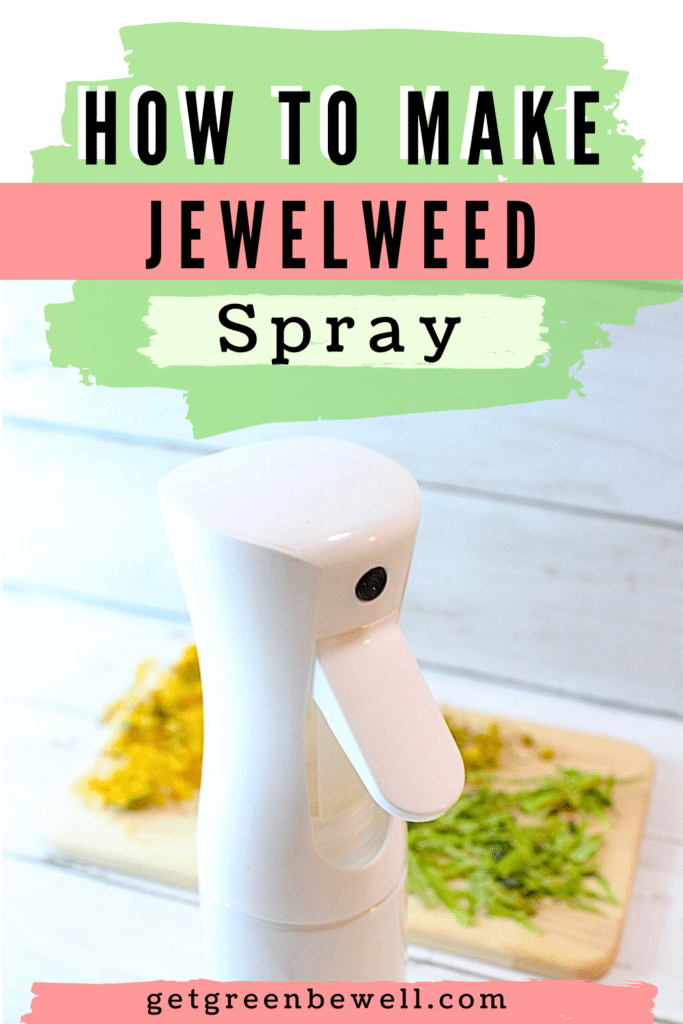
Want to make a natural first aid kit? Check out these ideas next:
